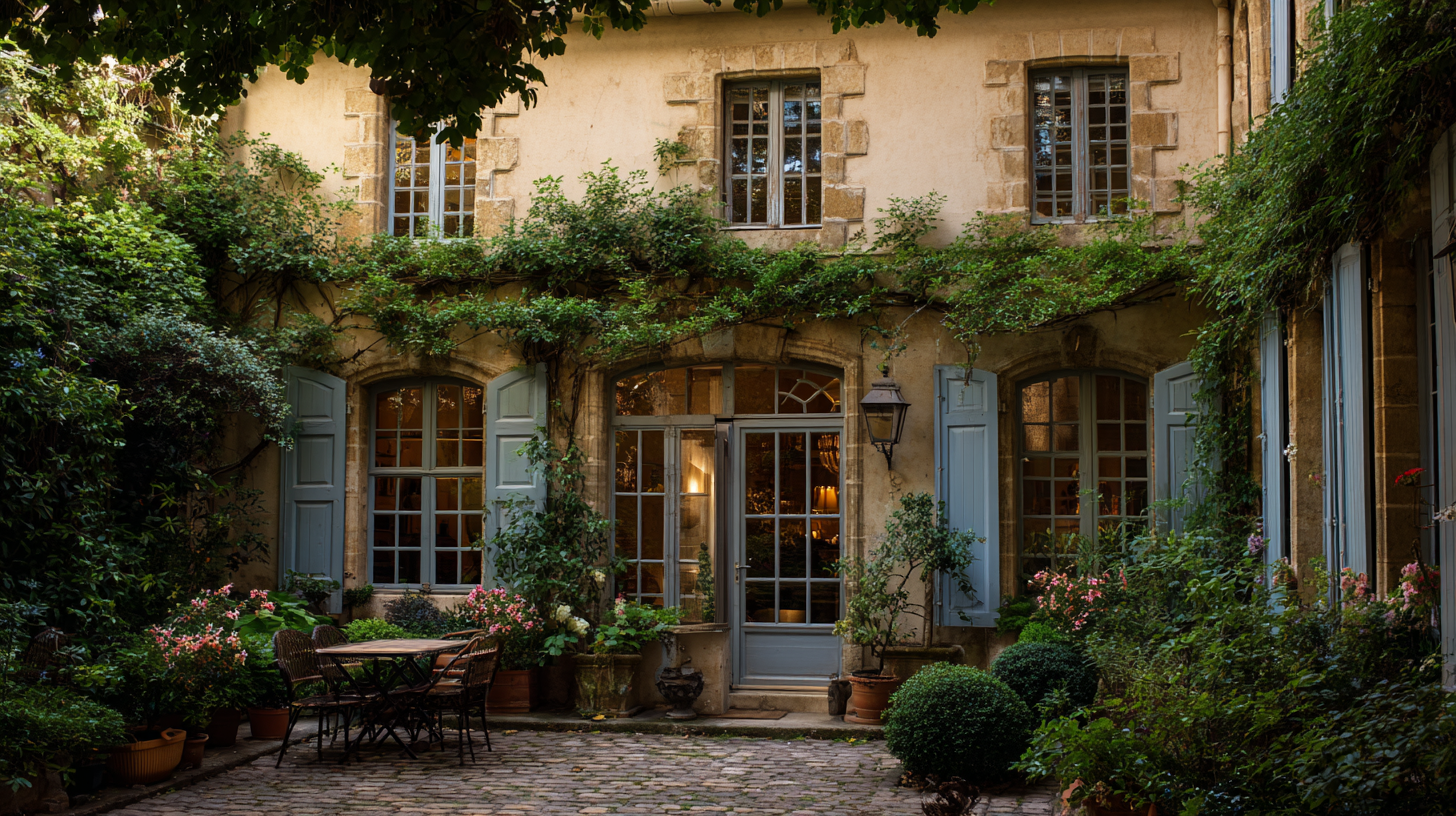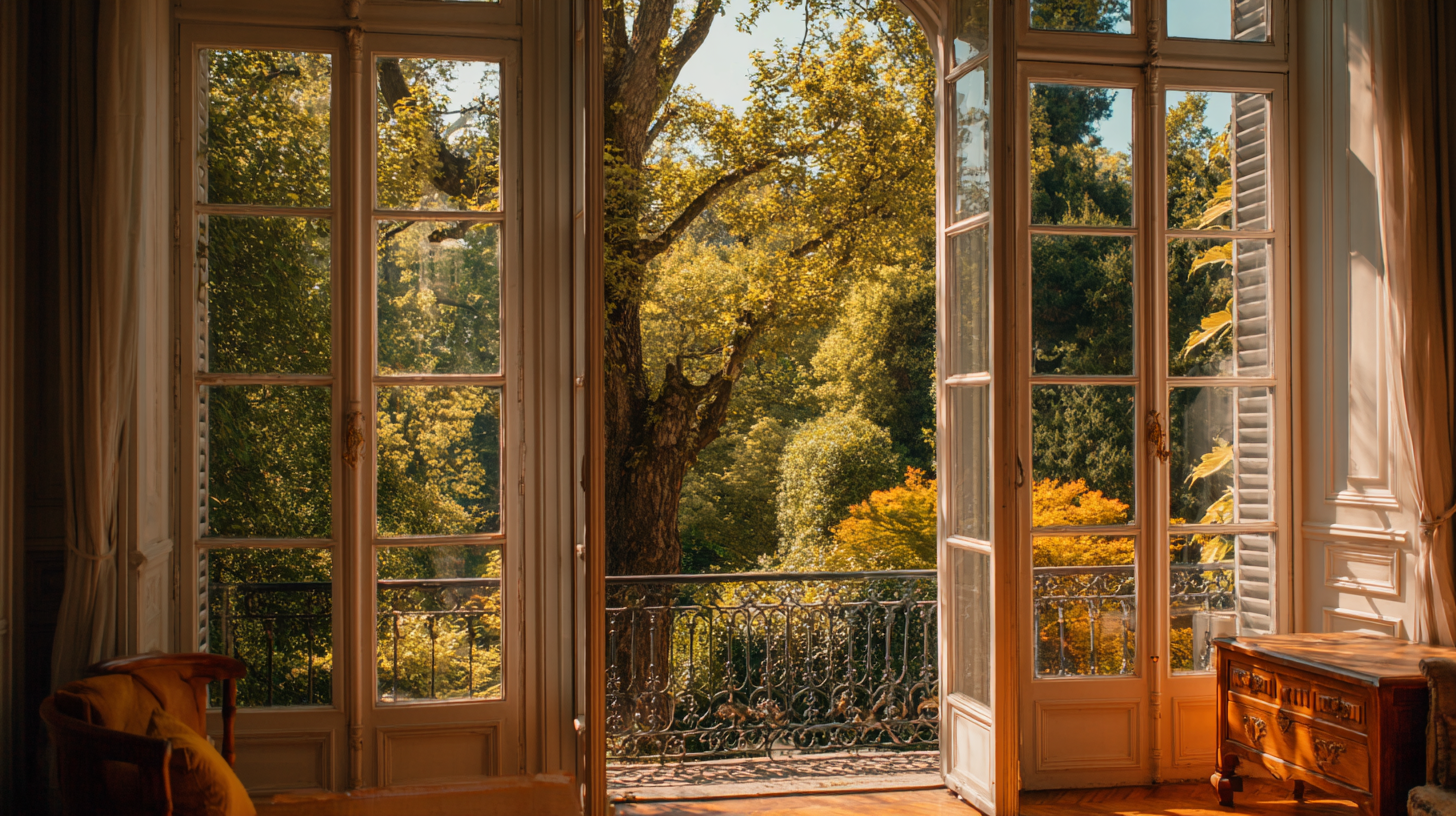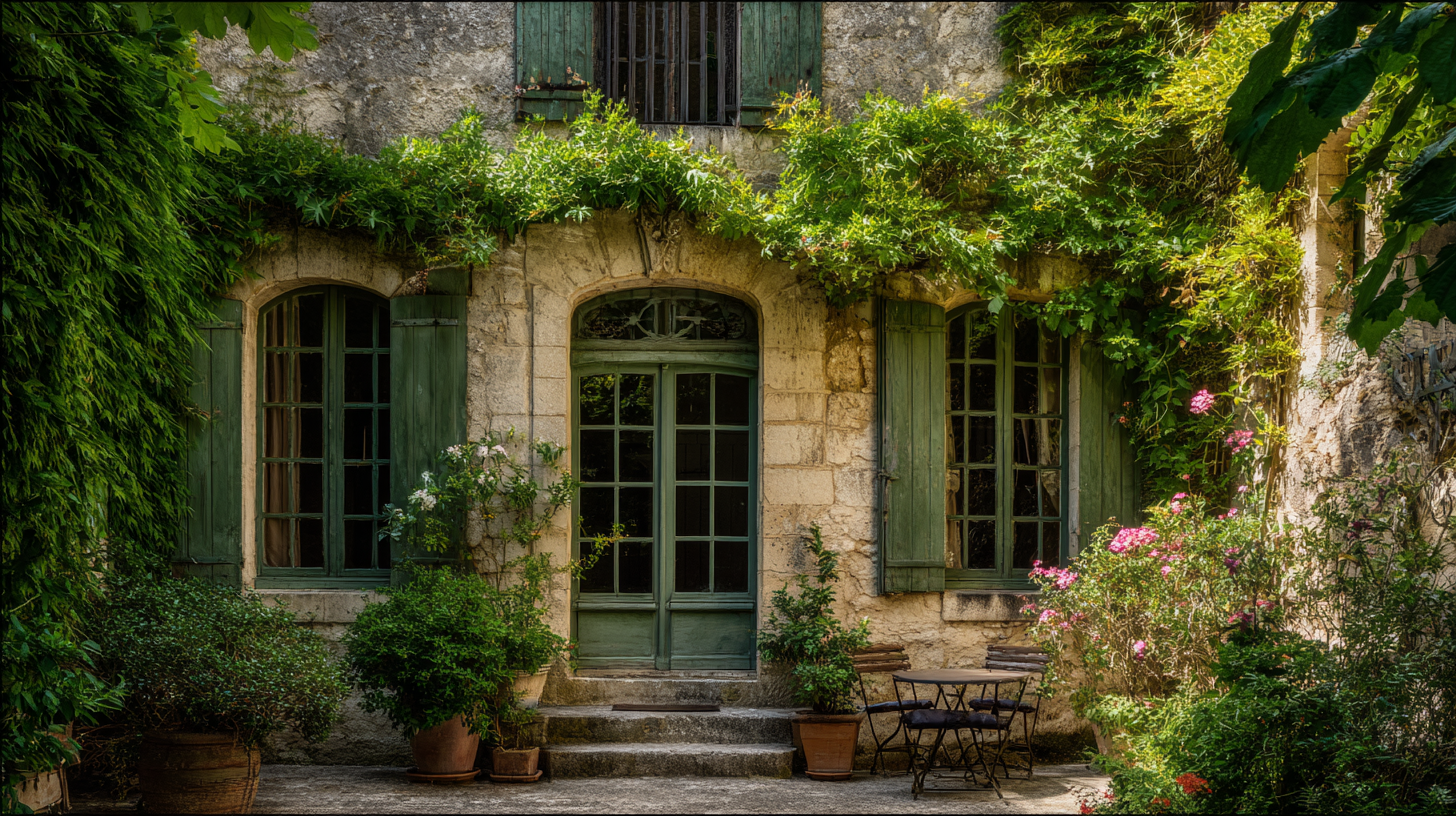5 Essential Tips for Choosing the Perfect French Windows for Your Home
Choosing the right windows for your home is crucial not only for aesthetics but also for energy efficiency and comfort. According to a recent report by the American Institute of Architects, window styles such as "french windows" have seen a resurgence in popularity, with a 30% increase in demand over the last five years. These elegant fixtures not only enhance natural light but also create a seamless connection between indoor and outdoor spaces, appealing to homeowners who prioritize both style and functionality. Additionally, Energy Star reports that replacing old windows with modern french windows can lead to energy savings of up to 15% on heating and cooling costs. In this blog, we will explore five essential tips to help you make an informed decision when selecting the perfect french windows for your home, ensuring they complement your design while maximizing energy efficiency.

Table of Contents
[Hide]
Advantages of French Windows: Boosting Natural Light and Energy Efficiency by 30%
French windows are an excellent choice for those looking to enhance the ambiance of their home while also improving energy efficiency. One of the most significant advantages of French windows is their ability to boost natural light within a space. With larger glass panes and minimal framing, they invite sunlight in, creating a warm and inviting atmosphere. This increase in natural light not only elevates the aesthetic appeal but also reduces the need for artificial lighting during the day, leading to lower energy consumption and reduced electricity bills.
Furthermore, French windows can improve energy efficiency by as much as 30%. Modern designs come equipped with energy-efficient glass and advanced framing materials that help maintain indoor temperatures. This means that your home stays cooler in the summer and warmer in the winter, minimizing the reliance on heating and cooling systems. By making this investment, homeowners can enjoy both comfort and cost savings, while also contributing to a more sustainable environment. The stylish design of French windows also adds value to residential properties, making them a wise choice for those looking to enhance their home's functionality and aesthetic appeal.

Material Matters: Comparing Vinyl, Wood, and Aluminum for Longevity and Aesthetics
When it comes to choosing the perfect French windows for your home, the material you select plays a crucial role in both longevity and aesthetics.
Vinyl, wood, and aluminum each offer unique advantages that can influence the overall appeal and lifespan of your windows.
For instance, vinyl is known for its low maintenance and excellent energy efficiency, making it a popular choice for homeowners who prioritize practicality without sacrificing style.
Wood, on the other hand, exudes warmth and timeless elegance, providing a classic look that can enhance any home’s design. However, it requires regular maintenance to prevent rot and warping.
If you’re drawn to a modern aesthetic, aluminum windows might be the way to go. They offer strength and durability with sleek profiles, and their resistance to corrosion makes them ideal for various climates.
When deciding on the best material, consider not only the aesthetic qualities but also the climate of your region and the level of maintenance you’re willing to commit to.
Each material can significantly affect the look and feel of your space, so it’s important to choose wisely.
Additionally, ensure you assess the thermal performance and insulation properties of each option to enhance your home's energy efficiency.
Sizing Your Space: How to Measure for Optimal French Window Installation
When it comes to installing French windows in your home, taking accurate measurements is crucial to achieve a seamless fit and maximum aesthetic appeal. According to the American Institute of Architects (AIA), improper sizing can lead to numerous issues, including energy inefficiency and structural complications. The optimal way to measure your space for French windows involves assessing both the width and height of the window opening. Start by measuring the rough opening from the left to right and from the top to the bottom, ensuring that you take note of any irregularities in the wall structure.
Industry experts recommend leaving at least a ¼ inch allowance on each side of the window for expansion and contraction. This is particularly important in regions with fluctuating temperatures, as windows can expand or contract up to 1/4 inch per every 10-foot span, impacting seal integrity. In addition, consider the placement of surrounding trim or wall features, as outlined by the National Association of Home Builders (NAHB), which emphasizes that proper installation not only enhances visual appeal but also improves the lifespan and performance of the windows. Taking the time to measure accurately will ultimately ensure that your French windows become a stunning focal point in your home.

Energy Ratings Explained: Understanding U-Factor and Solar Gain to Save on Bills
When selecting French windows for your home, understanding energy ratings is crucial for both comfort and cost savings. Two key metrics to consider are the U-factor and solar gain. The U-factor measures the rate of heat transfer through the window; a lower U-factor indicates better insulation properties, which helps maintain a consistent indoor temperature, ultimately reducing your heating and cooling costs. Aim for windows with a U-factor of 0.30 or lower to achieve optimal energy efficiency.
Solar gain, on the other hand, refers to the amount of solar energy that passes through the window. This is especially important in colder climates where you want to maximize the heat gain during sunny days. Look for windows with high solar gain coefficients if you wish to capture warmth from the sun, allowing you to potentially lower your heating bills in winter. Striking the right balance between U-factor and solar gain will ensure that your French windows not only enhance the aesthetic appeal of your home but also contribute to a more energy-efficient environment, ultimately leading to significant savings on your utility bills.
Style Variations: Choosing Between Traditional, Modern, and Bi-Folding Designs for Your Home
When it comes to selecting the perfect French windows for your home, style variations play a crucial role. Traditional French windows feature classic designs with crossbars and elegant detailing, making them an ideal choice for older or period-style homes. These windows not only enhance the aesthetic of your dwelling but also provide a timeless charm that can complement both vintage and rustic decors. With their intricate craftsmanship, traditional windows can create a warm and inviting atmosphere, bringing an old-world elegance into your living space.
On the other hand, modern French windows lean towards minimalist designs with clean lines and larger panes of glass. This style is perfect for contemporary homes, allowing for maximum natural light and unobstructed views of the surroundings. Opting for modern designs can create a seamless transition between indoor and outdoor living, enhancing your home's overall spaciousness. If you’re looking for flexibility, bi-folding French windows are an excellent choice. They can be completely opened to connect your interior to the outside, making them perfect for entertaining and enjoying the fresh air. Whether you prefer a classic or contemporary style, understanding these variations will ensure you choose the right French windows to suit your home’s character and your personal taste.
5 Essential Tips for Choosing the Perfect French Windows for Your Home
| Design Type | Features | Pros | Cons | Best For |
|---|---|---|---|---|
| Traditional French Windows | Double-hung with mullions | Classic aesthetic, improves resale value | May not suit modern homes, less energy-efficient | Historic homes, traditional interiors |
| Modern French Windows | Sleek lines, large glass panels | Maximized natural light, energy-efficient | Can be more expensive, less privacy | Contemporary homes, urban apartments |
| Bi-Folding French Windows | Folds open to create an open space | Flexible space usage, connects indoors and outdoors | Higher installation cost, requires space for folding | Homes with gardens, patios |
Related Posts
-

Navigating Challenges with Sourcing French Windows for Global Buyers
-

Ultimate Guide to Selecting the Best Insulated Windows for Your Global Sourcing Needs
-

Innovative Examples of Energy Efficient Windows Transforming Home Energy Performance
-

Ultimate Guide to Choosing the Perfect Style Windows for Your Home
-

Issues Faced When Choosing Residential Doors and Windows for Your Home
-

Solutions for Boosting Energy Efficiency with Fiberglass Doors: Industry Insights and Data